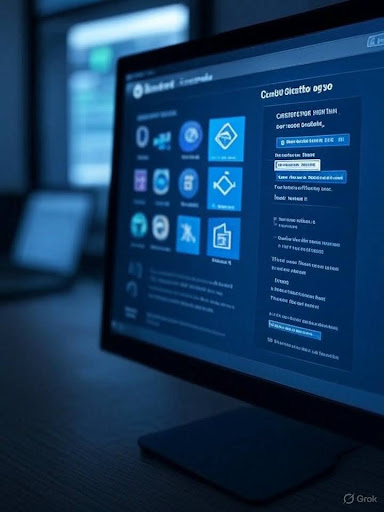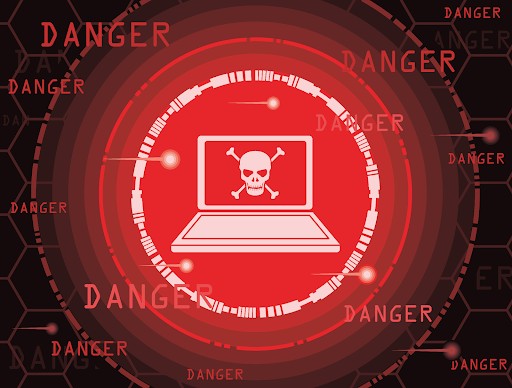A few years back, I was doing what any cybersecurity expert would do—watching my favorite tech videos, reading up on the latest cyber threats, and keeping an eye on torrenting sites. I never thought I’d find myself giving advice on the shutdown of ExtraTorrent, one of the largest and most notorious torrent sites on the web.
However, folks, here we are. ExtraTorrent is officially dead, and the worst part? Fake clones are still out there, preying on those who think they can get a quick fix.
As someone who’s been in the cybersecurity world for over 15 years, I’ve seen it all—from malware to ransomware, phishing attacks to data breaches. However, there’s something genuinely unsettling about these fake torrent clones. Here’s why you need to know how to stay safe when navigating the web post-ExtraTorrent.
Why ExtraTorrent Shut Down: What Happened?

Before we get into the clones, let’s quickly talk about why ExtraTorrent shut down. Back in 2017, the site’s administrators decided to pull the plug, leaving torrent users scrambling for alternatives. This was a huge blow to the torrenting community, given ExtraTorrent’s massive library of movies, music, and software.
But let’s be real: Torrenting, especially from sites like ExtraTorrent, has always been a risky business. Many torrent files—whether they’re movies, software, or even games—often contain malware that can infect your device the moment you download them. As a cybersecurity analyst, I’ve seen too many cases where people unknowingly download a virus along with their favorite movie. So, the shutdown of ExtraTorrent could have been a blessing in disguise.
Why Fake Clones of ExtraTorrent Are Dangerous
As ExtraTorrent’s reign ended, a slew of fake clone sites popped up, all claiming to be the “new ExtraTorrent.” But don’t be fooled—these sites are not your friend. Fake ExtraTorrent clones are designed to exploit unsuspecting users, and they come with a laundry list of risks. Here’s why you should avoid them like the plague:
-
Malware and Ransomware
Fake clones often come with malicious torrents. Downloading a file from these sites could unleash malware or ransomware on your computer. The last thing you want is to have your personal data encrypted until you pay a hefty ransom to a hacker.
-
Phishing and Data Theft
Some of these sites ask you to register or input personal information. Before you know it, your data has been sold to the highest bidder. These clones often don’t use secure connections, meaning any data you share is at risk of being intercepted.
-
Fake Torrent Files
These clones may also serve fake torrents that are intentionally misleading. A torrent that claims to be the latest blockbuster movie could instead be a hidden trojan horse that wreaks havoc on your system.
How to Make the Most of Torrenting Safely (And Avoid Fake Clones)

If you’re going to torrent, it’s best to do it safely and securely. Here’s a simple guide on how to minimize risks while still getting the content you love.
1. Use Legitimate Torrent Sites
First things first: You’ll need to do your homework. Some torrent sites are more reputable than others, and using a well-known site reduces your chances of downloading malicious content. Look for sites that have strong user communities, like 1337x, The Pirate Bay (though it has its own risks), and RARBG.
2. Install a VPN
A Virtual Private Network (VPN) is your best friend when it comes to online privacy. It will hide your IP address and make your online activities more secure. This is crucial if you don’t want your internet service provider (ISP) or hackers to see what you’re doing. It’s also an extra layer of protection from fake torrent sites.
3. Use Antivirus Software
I can’t stress this enough—keep your antivirus software up to date. Even if you think you’ve downloaded a safe file, an antivirus scan will add an extra layer of security. Make sure your software includes protection against ransomware and other online threats.
4. Check Torrent Comments
Most reputable torrent sites allow users to leave comments or reviews on torrents. Always check these comments before downloading. If something looks fishy, skip it. Users often flag suspicious files, so it’s a simple way to avoid malware.
Frequently Asked Questions
-
Is torrenting illegal?
Torrenting itself isn’t illegal, but downloading copyrighted content without permission is. It’s important to be aware of the laws in your country before you start downloading files.
-
How can I tell if a torrent site is safe?
Look for user reviews, the site’s age, and whether it uses HTTPS (look for the padlock symbol next to the URL). Avoid sites that pop up overnight or have a lot of pop-up ads—they’re often not secure.
-
What happens if I download a fake torrent?
If you download a fake torrent, you risk infecting your device with malware or ransomware. This could result in data theft, system crashes, or worse, paying a ransom to hackers to get your files back.
-
How can I stay anonymous while torrenting?
Using a VPN is key to staying anonymous while torrenting. It hides your real IP address and keeps your online activity secure. Just make sure you choose a reputable VPN service with a no-logs policy.
Stay Smart, Stay Safe
The bottom line is this: ExtraTorrent may be gone, but the dangers of fake clones are very much alive. The best way to stay safe in the world of torrenting is to stick to trusted sites, use security tools like VPNs and antivirus software, and always stay vigilant. Trust me, as someone who’s spent years tracking cyber threats, it’s worth the extra effort to stay safe. Don’t let curiosity or convenience get the best of you—be smart about where and how you download.
And remember, there are plenty of legitimate ways to access movies, music, and software without the risks of fake clones. Always be cautious online, and don’t let your desire for free content lead you down a dangerous path.

